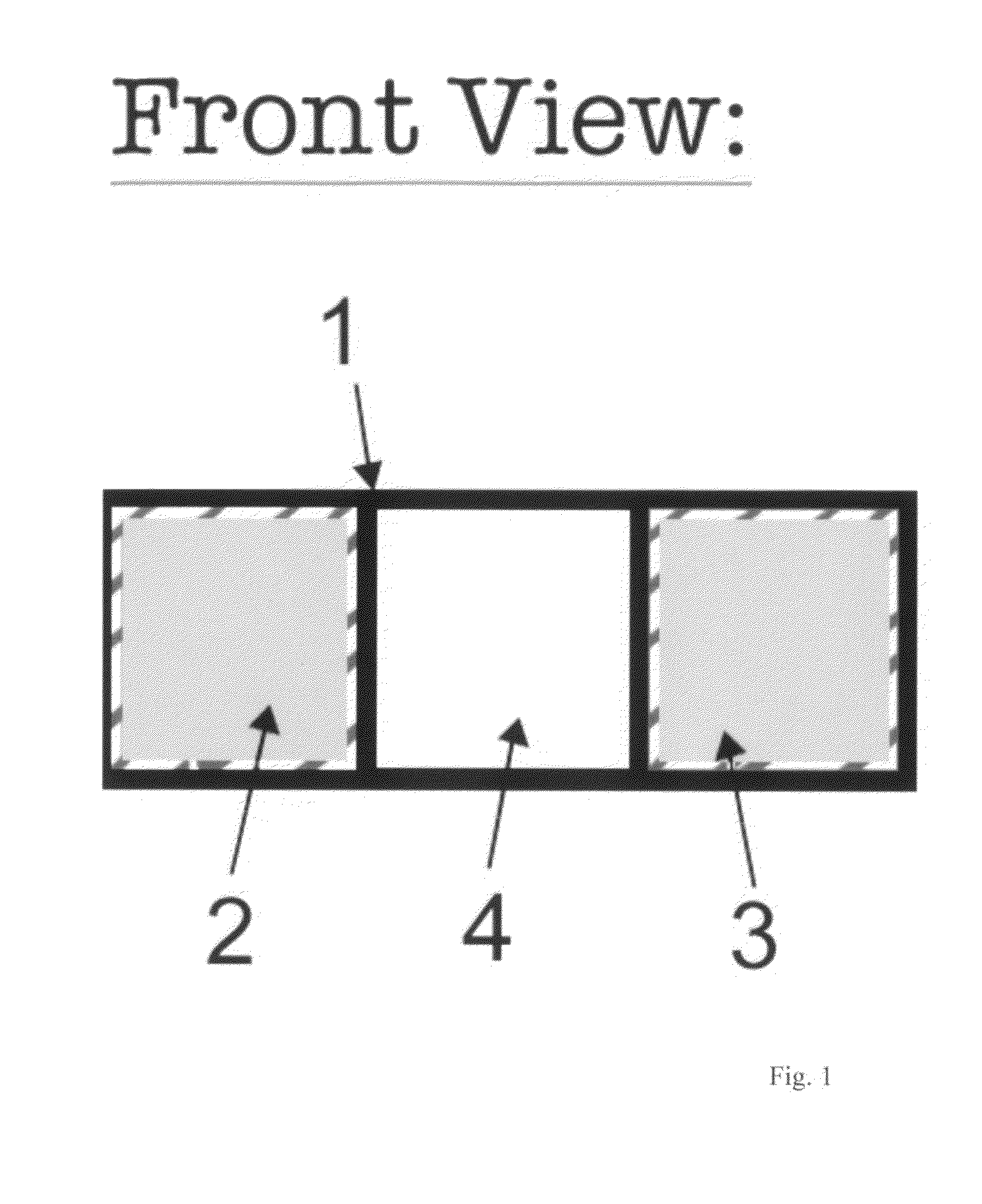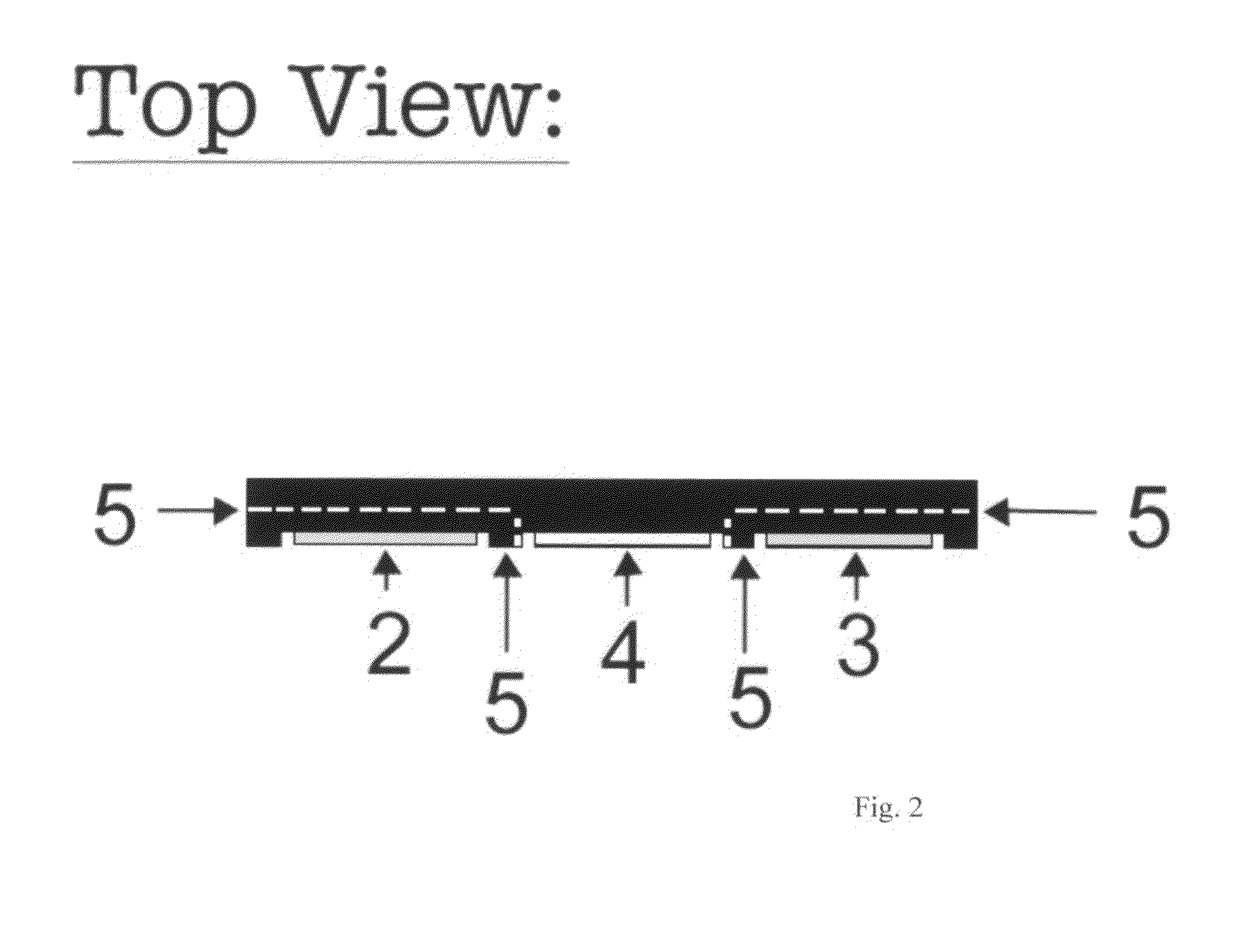Thermal Array
a technology of thermodynamic arrays and sample blocks, applied in biomass after-treatment, specific use of bioreactors/fermenters, biochemistry apparatus and processes, etc., can solve the problem of extremely rapid thermodynamic cycling of sample blocks, achieve high efficiency, eliminate the mass of sample blocks, and low energy
- Summary
- Abstract
- Description
- Claims
- Application Information
AI Technical Summary
Benefits of technology
Problems solved by technology
Method used
Image
Examples
Embodiment Construction
[0015]Referring now to the invention in more detail, in FIG. 1, FIG. 2 and FIG. 3 there is shown a thermal array 1 having a heating element 2 and a separate heating element 3 held in position by the entire cooling block 4. Each of the heating elements 2&3 are attached to the cooling block with insulation 5 covering all four sides and the back of the heating elements. Only the front side of the heating elements 2&3 are exposed to conduct heat to a sample vial forming a contact face.
[0016]In further detail, still referring to the invention of FIG. 1, FIG. 2 and FIG. 3, the cooling block 4 front portion and the heating elements 2&3 front portions are sufficiently wide and long for a sample reaction vessel, such as about 0.5 to 2.0 centimeters long and about 0.5 to about 2.0 centimeters wide. The actual length and width are determined by the size of the reaction vessel. The amount of insulation is large enough to thermally isolate the heating elements 2&3 from the cooling block 4.
[0017]...
PUM
| Property | Measurement | Unit |
|---|---|---|
| temperatures | aaaaa | aaaaa |
| temperatures | aaaaa | aaaaa |
| temperatures | aaaaa | aaaaa |
Abstract
Description
Claims
Application Information
 Login to View More
Login to View More - R&D
- Intellectual Property
- Life Sciences
- Materials
- Tech Scout
- Unparalleled Data Quality
- Higher Quality Content
- 60% Fewer Hallucinations
Browse by: Latest US Patents, China's latest patents, Technical Efficacy Thesaurus, Application Domain, Technology Topic, Popular Technical Reports.
© 2025 PatSnap. All rights reserved.Legal|Privacy policy|Modern Slavery Act Transparency Statement|Sitemap|About US| Contact US: help@patsnap.com



